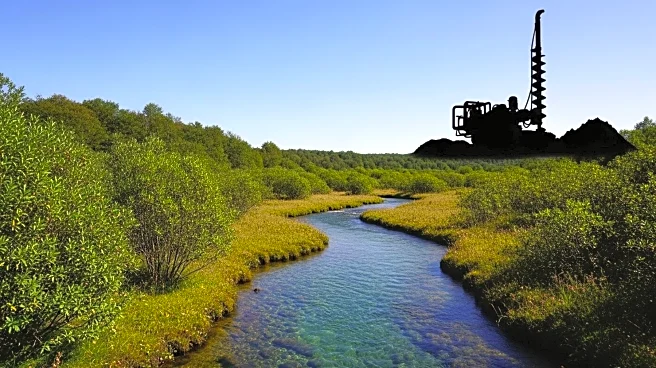What's Happening?
Chile's Supreme Court has ruled in favor of Andes Iron, allowing the controversial Dominga mining project to proceed after a 12-year legal battle. The court dismissed appeals from President Gabriel Boric Font's government and environmental groups, who opposed the project due to its proximity to the Humboldt Penguin National Reserve. The decision marks a significant milestone for the project, which involves a $2.5 billion investment and aims to create 30,000 jobs by mining iron and copper over a 26-year period. Despite the ruling, the project must still undergo re-evaluation by the Committee of Ministers, which has previously voted against it three times.
Why It's Important?
The Supreme Court's decision is pivotal for Chile's mining sector, potentially boosting investment and job creation. However, it also raises concerns about environmental protection and the efficiency of Chile's bureaucratic processes. The prolonged legal conflict highlights the challenges faced by investors in navigating Chile's regulatory landscape, which could deter future investments and impact the country's competitiveness. The ruling underscores the tension between economic development and environmental conservation, a critical issue for Chile as it seeks to balance growth with sustainability.
What's Next?
The Dominga project will undergo further scrutiny by the Committee of Ministers, which has historically opposed it. The outcome of this re-evaluation will be crucial in determining whether the project can proceed. Stakeholders, including environmental groups and the government, are likely to continue their opposition, emphasizing the need for a more streamlined and transparent environmental review process. The decision could also influence future mining projects and regulatory reforms in Chile.
Beyond the Headlines
The case highlights the political dimensions of environmental decision-making in Chile, with ties to former President Sebastián Piñera adding complexity to the debate. The ruling may prompt discussions on reforming Chile's environmental impact assessment system to reduce bureaucratic hurdles and improve investment conditions. It also raises ethical questions about prioritizing economic gains over environmental preservation, a dilemma faced by many countries globally.











